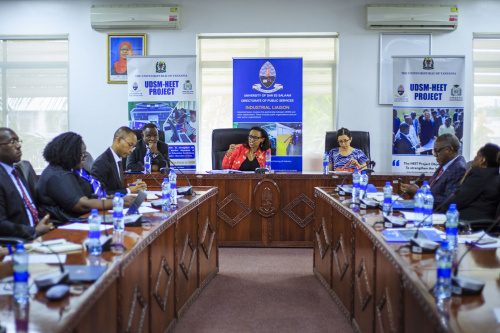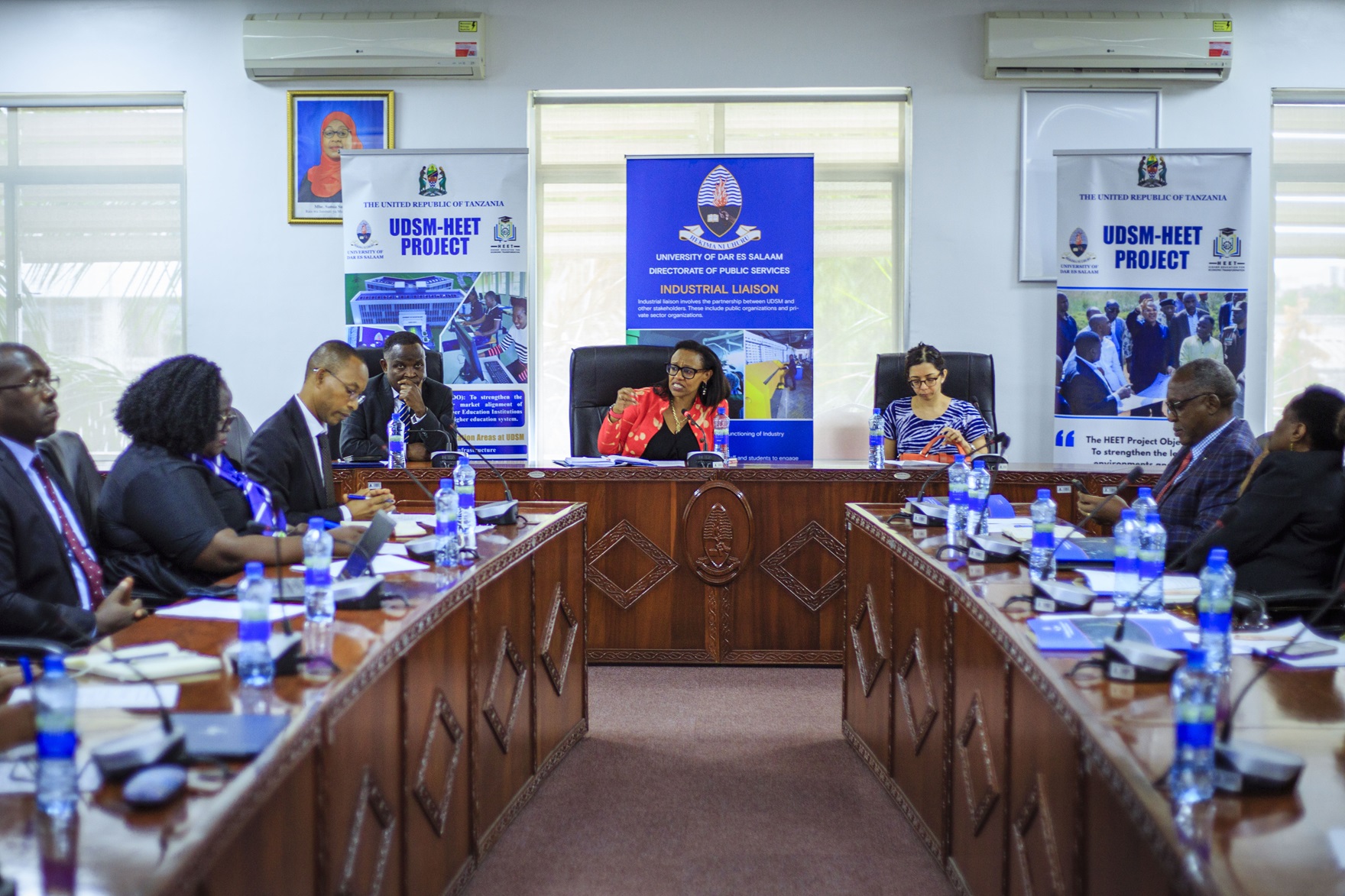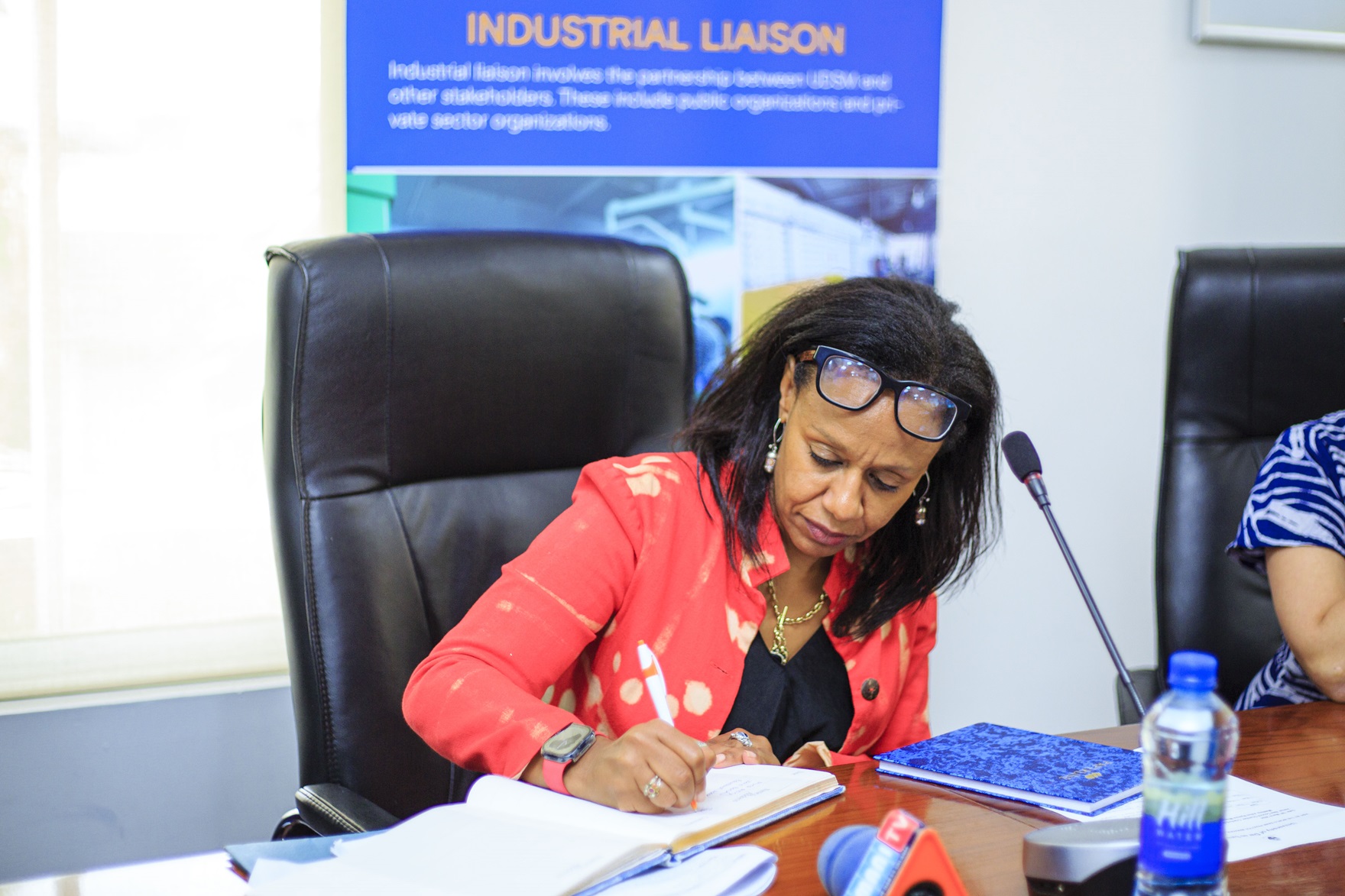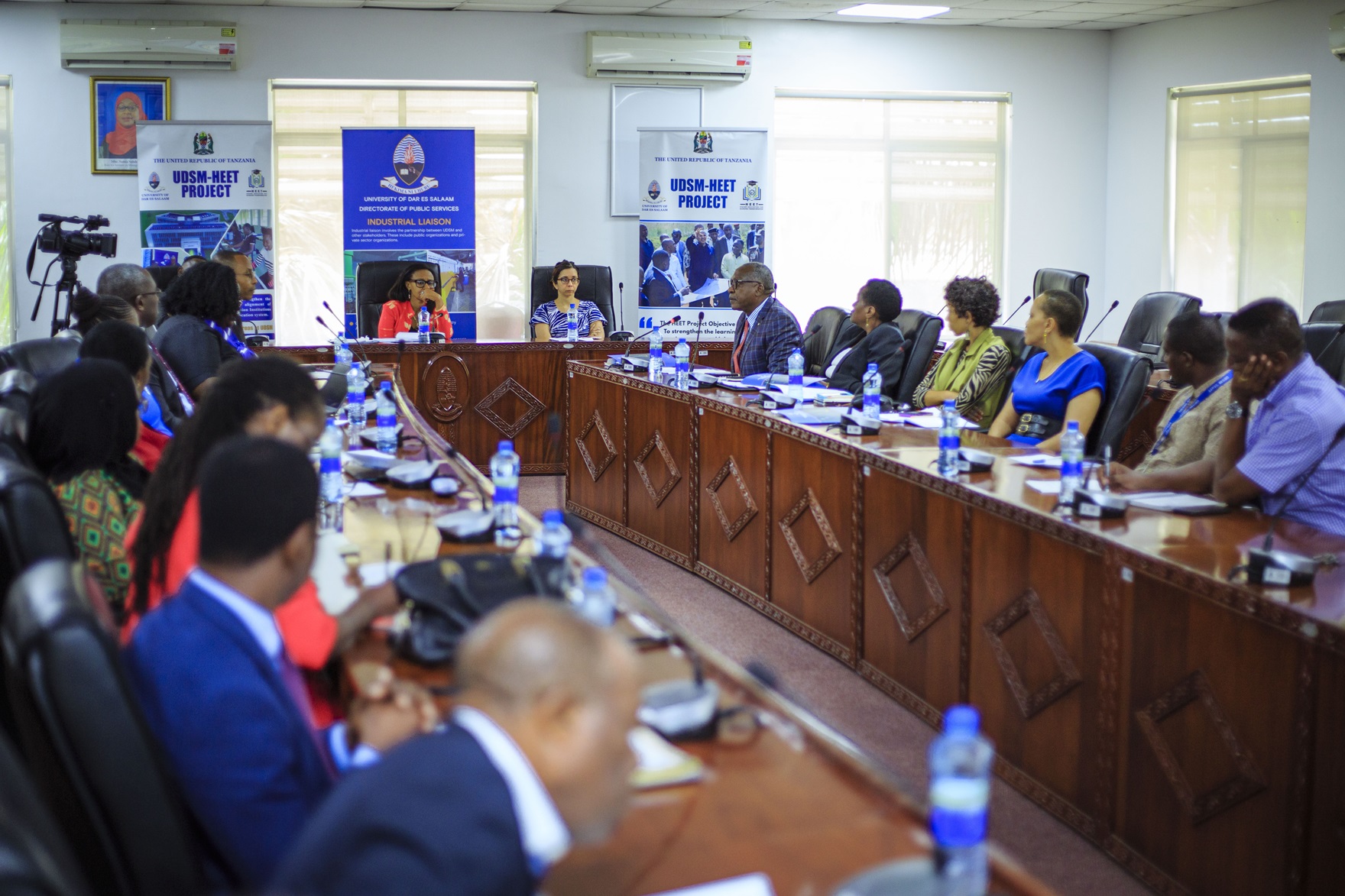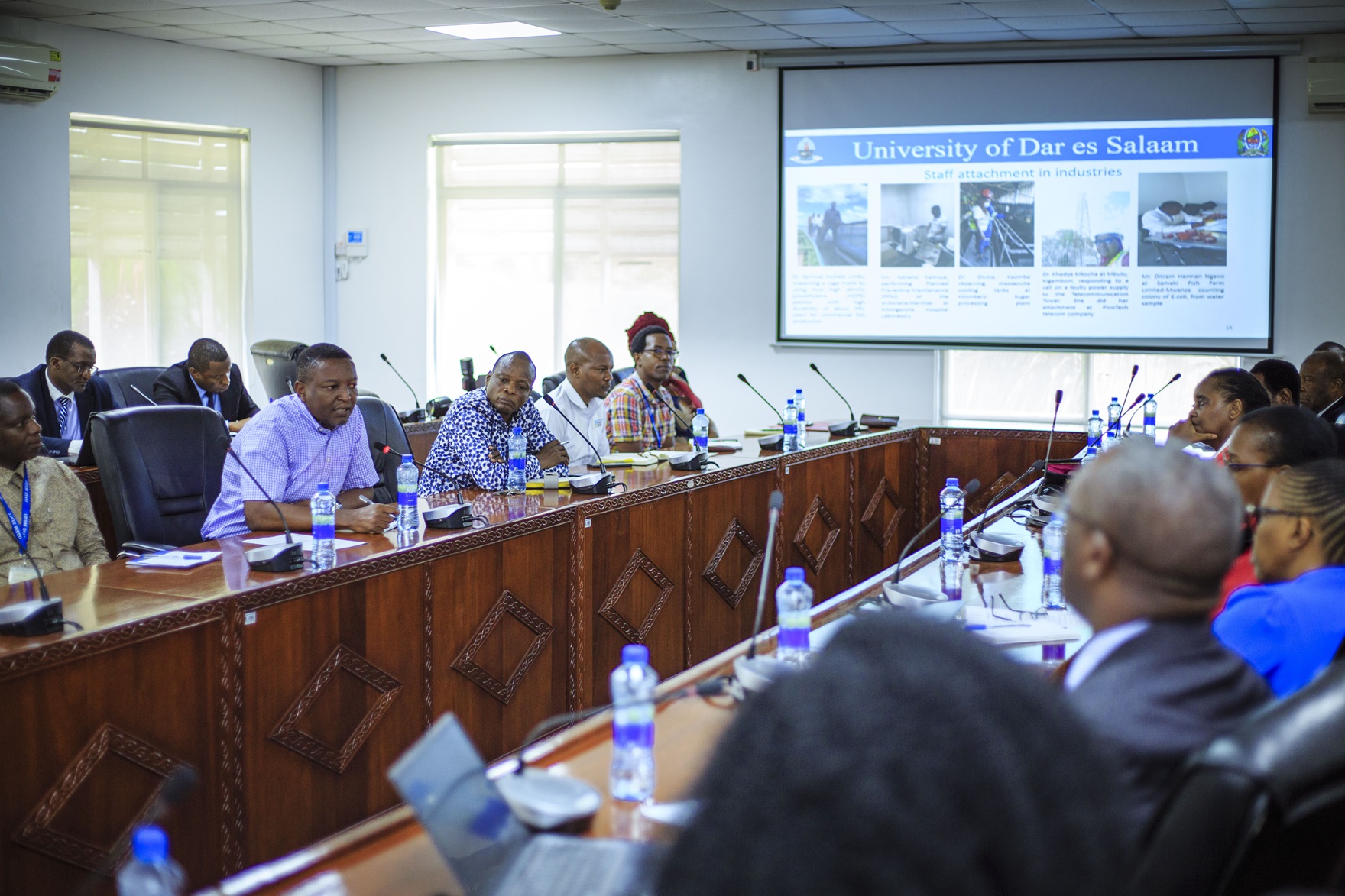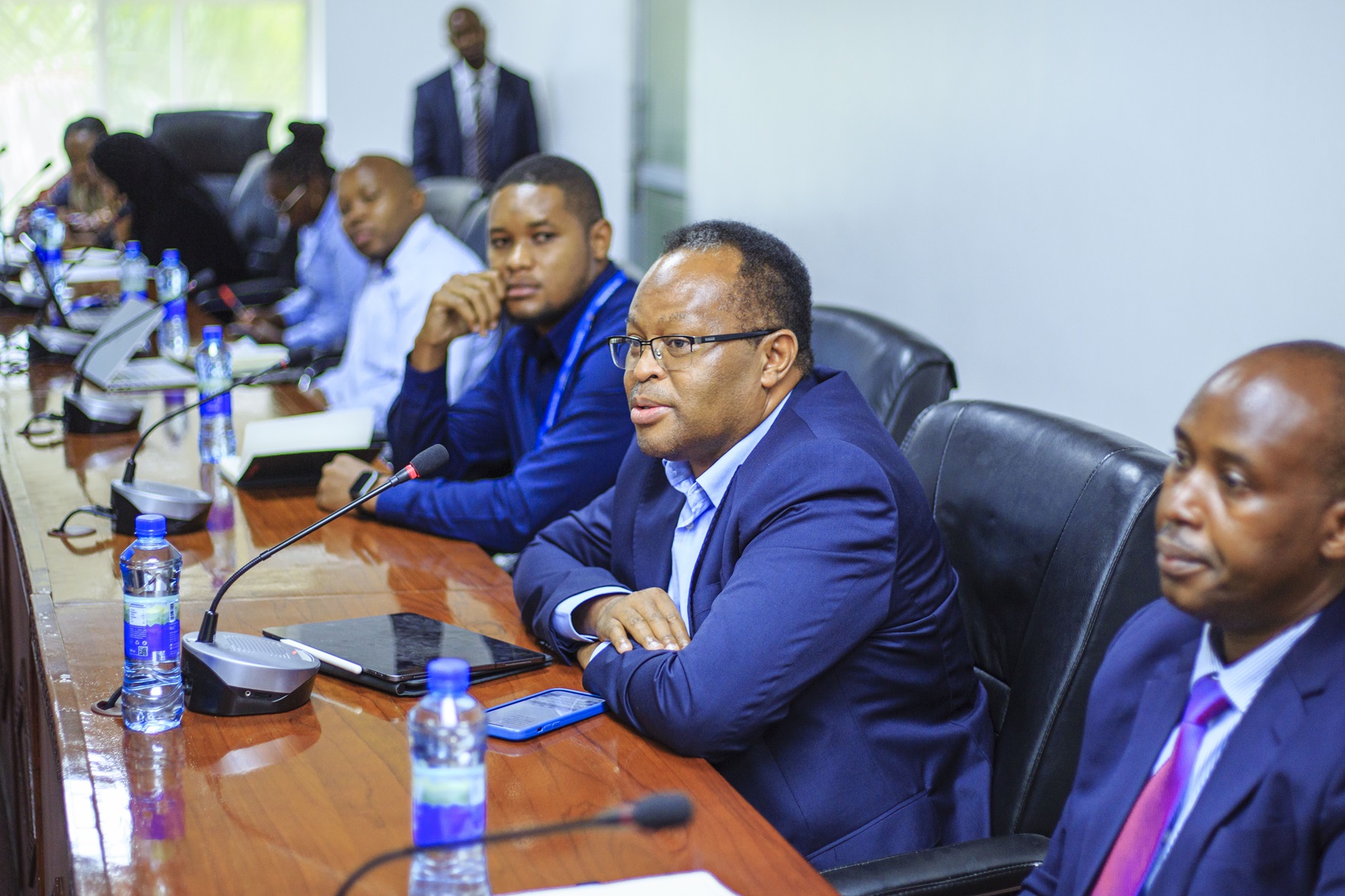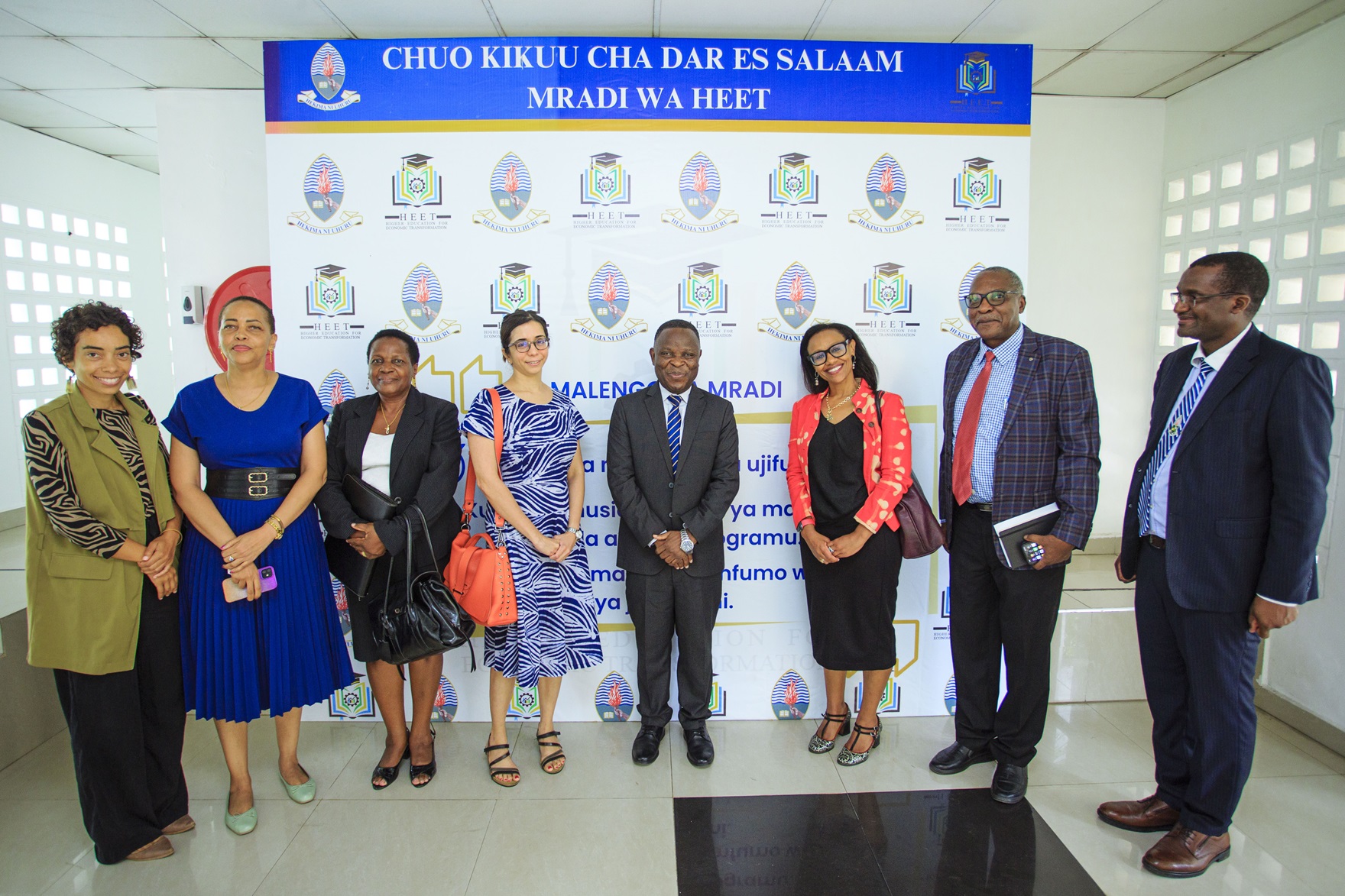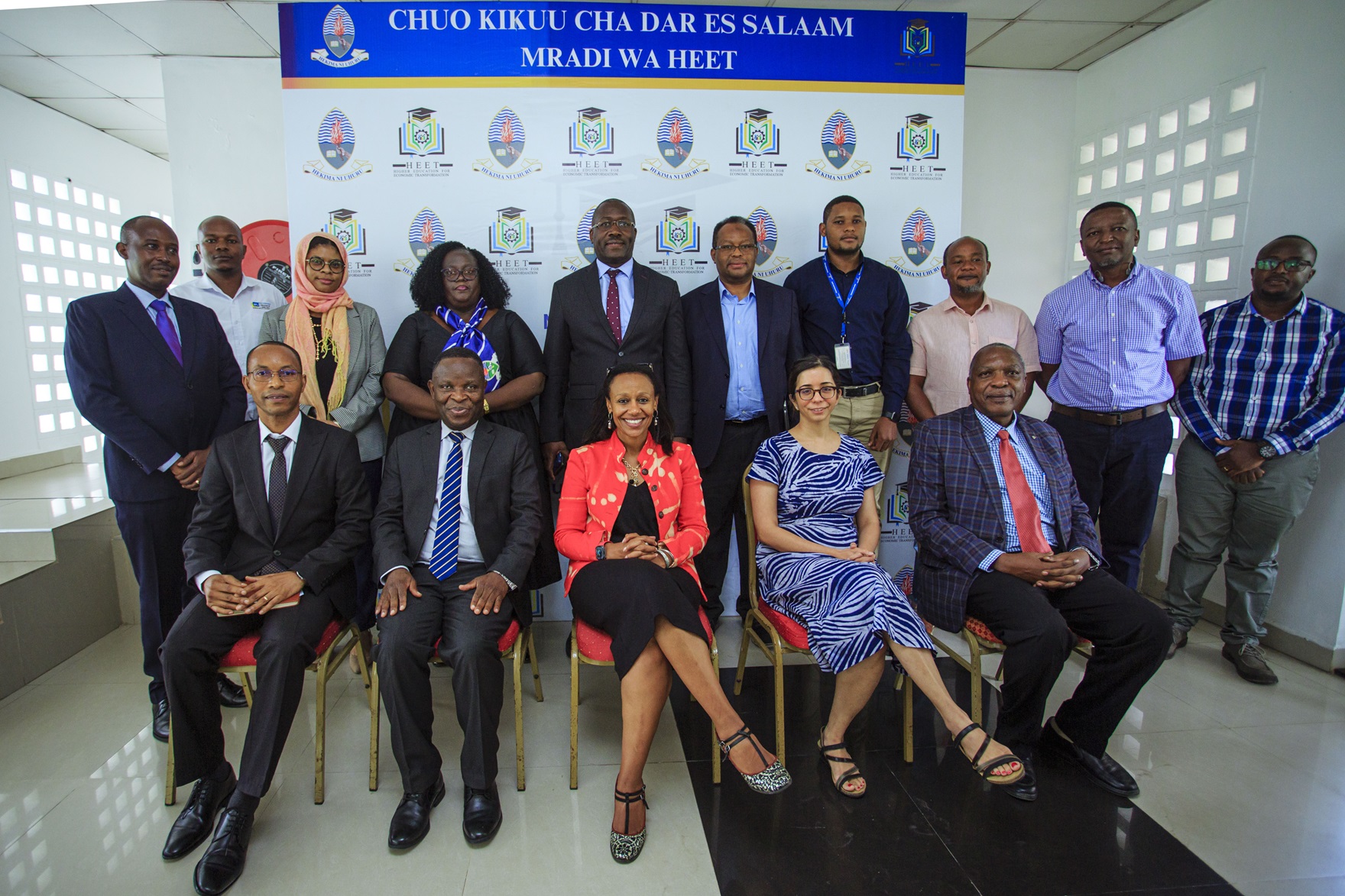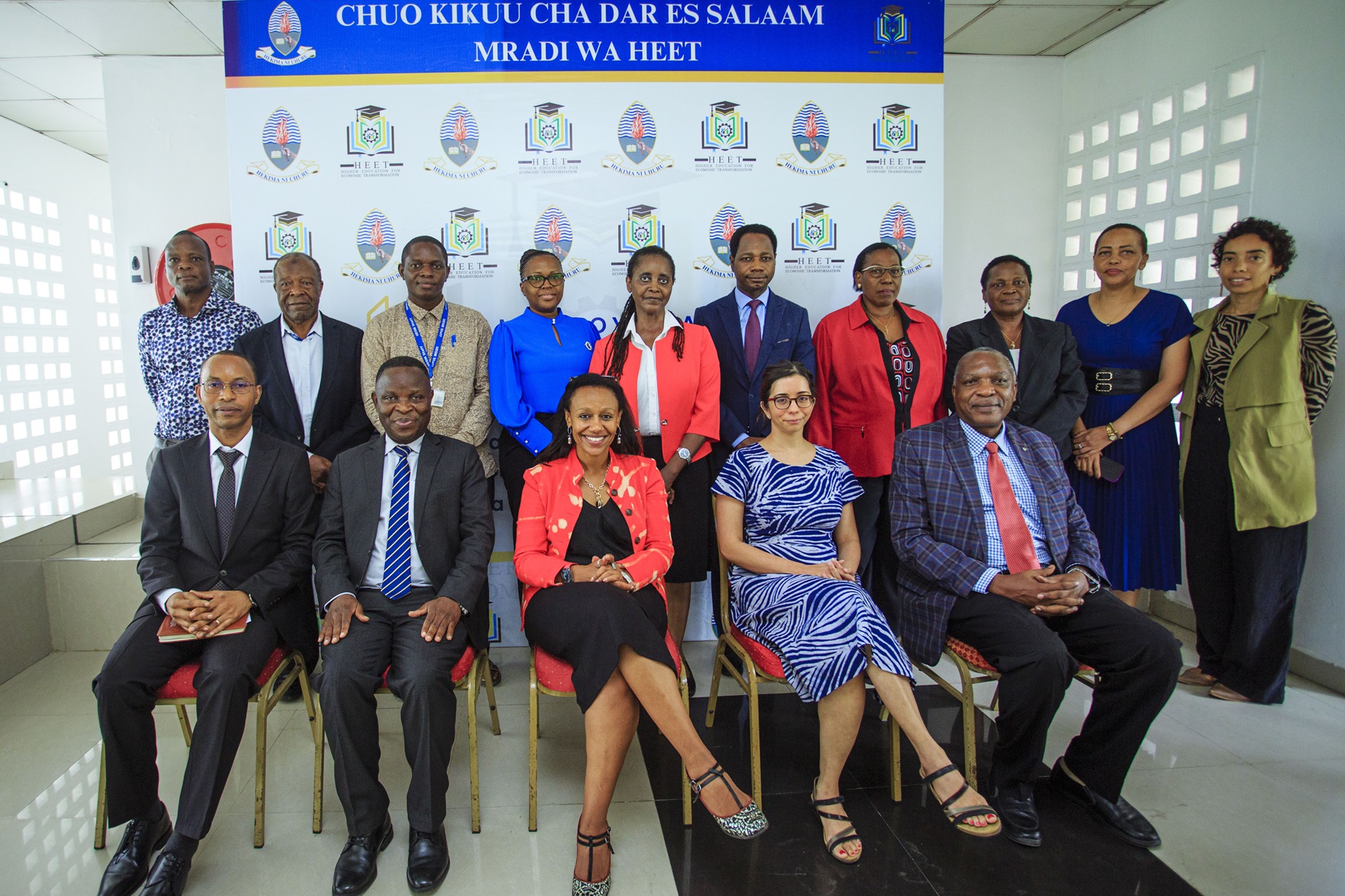News
World Bank Practice Manager visits UDSM, commends HEET Project progress
By Dotto Kuhenga, CMU
The World Bank Practice Manager, Ms. Muna Salih Meky has visited the University of Dar es Salaam (UDSM) and commended the notable progress of the varsity’s implementation of the Higher Education for Economic Transformation (HEET) Project.
Ms. Meky, who visited UDSM on 18th March 2024 and held talks with the University management, members of the Project Implementation Unit, and invited UDSM stakeholders, especially from the industry, applauded the University for making promising developments in the undertaking of various activities of the World Bank grant HEET Project.
“The different activities you are undertaking, and achievements realised indicate the level of seriousness you have put on this project and related efforts. All these now should be reflected on a sustainability plan that will ensure continuity after completion of the project’, said Ms. Meky.
She also urged the University to consider investing more efforts and resources on information and communication technology and engineering technology which respond directly to the needs of manufacturing industries and the modern technology in the world today.
Meanwhile, UDSM Vice Chancellor, Prof. William A. L. Anangisye said the University was poised to implement the HEET project and use appropriately the USD 47.5 million which had been allocated to UDSM under this Project for the period of five years (2021-2026).
Prof. Anangisye said various activities were implemented under the five priority disciplines of the project namely, Engineering and Technology, Information and Communication Technologies, Agriculture and Agribusiness, Urban and Environmental Engineering and Economics.
“Since the start of the project in August 2022 several milestones have been attained. In terms of construction and rehabilitation of infrastructure, the University 24 buildings which will host laboratories, workshops, studios, lecture theatres, lecture rooms and hostels are under construction”.
Prof. Anangisye said the infrastructure development activities under the project included the establishment of new campuses in Lindi and Kagera regions for agriculture and business, respectively. More buildings are set for construction at the Mwalimu Julius Nyerere Mlimani campus, including in Kunduchi, Kijitonyama and Buyu.
“Contracts for design review and supervision of construction activities for the Dar es Salaam, Zanzibar and Lindi campuses were signed in November 2023. Contracts for rehabilitation of buildings in Dar es Salaam and construction of new buildings in Dar es Salaam, Zanzibar and Lindi regions were signed in February 2024. We are optimistic that the construction activities will be completed within the period of 18 months as planned”, he said.
He said that the contract for the construction of buildings for the Kagera campus was expected to be signed before the end of April 2024 after completion of the procurement processes. “In terms of upgrading learning resources and equipment, through the Project, the University through the Project has procured software and equipment for students with special needs”.
Upgrading curriculum
Regarding upgrading curriculum, Prof. Anangisye said the University had completed a tracer study since August 2023 which involved 3,000 employees and 8,000 graduates from various sectors. The University conducted the academic and governance benchmarking within and outside Africa. “The findings from both the tracer study and benchmarking informed the ongoing curricula review process”.
“About 238 programmes, out of which 95 are from the priority areas, are under review. Already stakeholder workshops have been conducted. The tracer study and curriculum review processes involved the Industry Advisory Committees (IACs)”, he added.
Meanwhile, stakeholders from the industry testified about the functional linkages between them (industry) and UDSM and noted how the project supported the development of various systems and, for UDSM, establishment of an office for linkage with industry.
Dr. Liberato Haule, UDSM Deputy Coordinator for HEET Project, said the University had formulated guidelines on how to engage with the industry that focused on five key areas namely, collaboration on outreach services with industry; establishment and operationalisation of Industry Advisory Committees; applied research, innovation and training infrastructures; collaboration on staff and students’ attachment/internship in industry; and involvement of adjunct staff to deliver UDSM academic programmes.
HEET project focus areas at UDSM
In its totality, the HEET Project at UDSM, which is worth 47.5 million USD, focuses on eight key areas, namely, construction or rehabilitation of infrastructure; updating curriculum and introducing innovative pedagogical methodologies; and promoting applied research and innovation capacity.
Other areas include building functional linkages with the private sector/industry; strengthening the use of digital technology; promoting self-generated income; building capacity of academic staff and university leadership; and project administration, coordination, monitoring and evaluation.
Other News
Fri, 26.Jul.2024 : Dr. Bulugu and Dr. Mdukula secure University Administration Support Program (UASP) fellowshipFri, 26.Jul.2024 : Optimism as UDSM and RUWASA ponder on increased affordable water availability
Fri, 26.Jul.2024 : Dr. Nyanto appointed Research Fellow at University of South Africa
Wed, 24.Jul.2024 : Kiswahili introduced at the University of Zambia
Tue, 23.Jul.2024 : Admission opens for new students
Tue, 23.Jul.2024 : TIGO and UDSM to strengthen academia-industry linkage
Tue, 23.Jul.2024 : UDSM strengthens academic collaboration with Tanzania Military Academy
Wed, 10.Jul.2024 : UDSM's AI workshop at Sabasaba highlights Tanzania digital economy future


